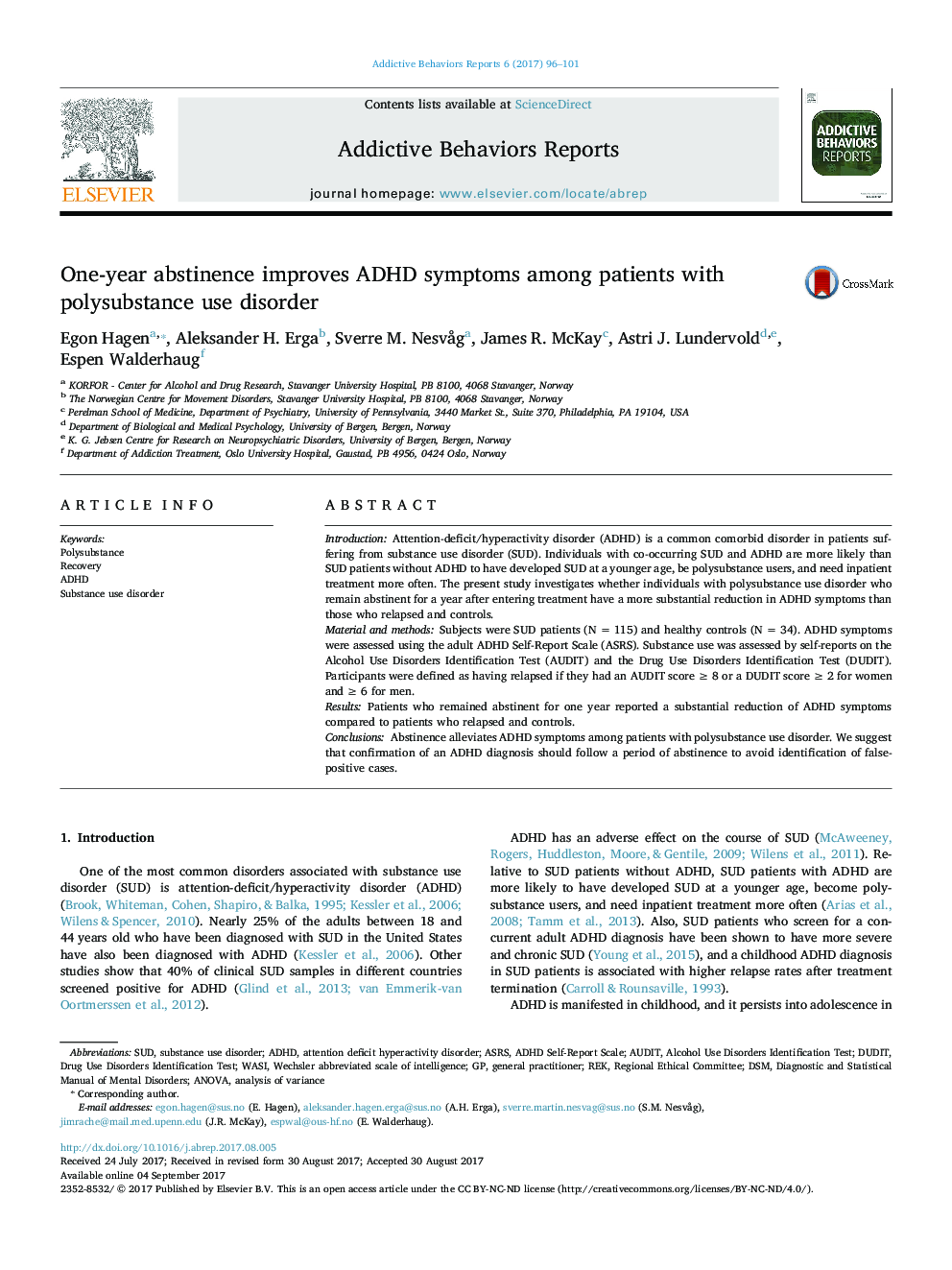| Article ID | Journal | Published Year | Pages | File Type |
|---|---|---|---|---|
| 5037939 | Addictive Behaviors Reports | 2017 | 6 Pages |
â¢Do SUD patients who remain abstinent for a year have an alleviation of ADHD symptoms compared to relapsers and controls?â¢We found a substantial alleviation of ADHD symptoms after one year of abstinence.â¢Confirmation of an ADHD diagnosis should follow a period of abstinence to avoid identification of false-positive cases
IntroductionAttention-deficit/hyperactivity disorder (ADHD) is a common comorbid disorder in patients suffering from substance use disorder (SUD). Individuals with co-occurring SUD and ADHD are more likely than SUD patients without ADHD to have developed SUD at a younger age, be polysubstance users, and need inpatient treatment more often. The present study investigates whether individuals with polysubstance use disorder who remain abstinent for a year after entering treatment have a more substantial reduction in ADHD symptoms than those who relapsed and controls.Material and methodsSubjects were SUD patients (N = 115) and healthy controls (N = 34). ADHD symptoms were assessed using the adult ADHD Self-Report Scale (ASRS). Substance use was assessed by self-reports on the Alcohol Use Disorders Identification Test (AUDIT) and the Drug Use Disorders Identification Test (DUDIT). Participants were defined as having relapsed if they had an AUDIT score â¥Â 8 or a DUDIT score â¥Â 2 for women and â¥Â 6 for men.ResultsPatients who remained abstinent for one year reported a substantial reduction of ADHD symptoms compared to patients who relapsed and controls.ConclusionsAbstinence alleviates ADHD symptoms among patients with polysubstance use disorder. We suggest that confirmation of an ADHD diagnosis should follow a period of abstinence to avoid identification of false-positive cases.
